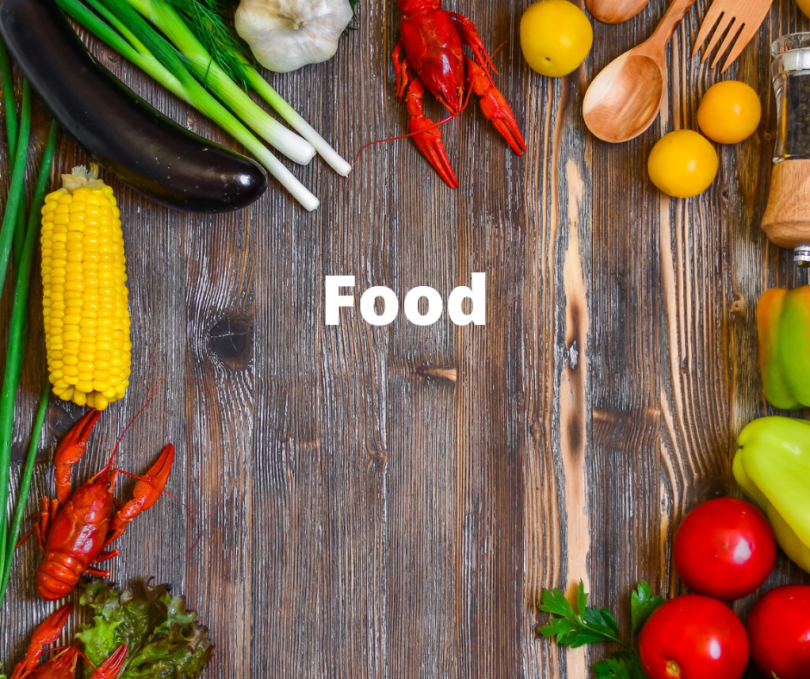Importance Of Food In Our Daily Lives
Food is an essential part of our lives. In fact it is essential for human survival. It not only provides the nutrients we need to sustain, but it also provides the nutrients and energy that our bodies need to function properly and plays a role in our culture, society, and economy.
The way we prepare and consume food can also have a significant impact on our health. That’s why it’s important to choose foods that are not only nutritious but also delicious.
The study of food is known as gastronomy. Gastronomy encompasses the art, science, and history of food. It includes the study of food production, preparation, and consumption. It also includes the study of the sensory properties of food, such as taste, smell, and texture.
The study of food is important for a number of reasons. First, it can help us better understand the world around us. Second, it can help us improve our diets and eating habits. Third, it can help us appreciate the role that food plays in our culture and society.
If you are interested in learning more about food, then we encourage you to explore the resources in our blog. we will explore the different aspects of food – from its nutritional value to its historical and cultural significance. We will also provide tips on how to choose and prepare healthy meals that are sure to please your palate.
Role Of Food In Our Culture
In many cultures, food is a way to show affection, bond to others. sharing a meal is a way to build relationships and create bonds.For example, in many cultures, food is used as a way to celebrate special occasions. It is also often used as a form of social currency, as sharing a meal is a way to show hospitality and form bonds between people.
Food is an important part of our culture. It is a source of nourishment and pleasure, and it plays a significant role in many social and religious rituals.
Food is also a central part of many religious rituals. For instance, in Christianity, the Eucharist is a sacred ritual in which bread and wine are consecrated and consumed. In Islam, the act of breaking bread together is a way to show unity. And in Judaism, certain foods are eaten during religious festivals to commemorate important events in history. Clearly, food plays a significant role in our culture.
Food is also a symbol of our identity, and it can be used to express our cultural values and traditions. Our food choices can tell others a lot about who we are and where we come from. What we eat can be a reflection of our values, our beliefs, and our traditions.
In recent years, there has been a growing interest in the role of food in our culture. This has led to a better understanding of the impact that food has on our lives. And as we continue to learn more about the role of food in our culture, we can use this knowledge to make better choices about what we eat and how we live.
Evolution of food
The evolution of food is a long and complicated process that is still ongoing today. Humans have been eating food for millions of years, and the foods we eat today are the result of a long history of trial and error.
It begins with the first plants and animals that were able to be eaten by early humans. Over time, as humans began to cultivate and domesticate plants and animals, they began to change the way they ate. New techniques and technologies were developed, and different cultures developed their own unique culinary traditions.
Throughout the ages, our ancestors have had to adapt to changes in the environment, such as the rise and fall of civilizations, the introduction of new technologies, and the impact of climate change. As a result, the foods we eat today are very different from the foods our ancestors ate.
For example, the first humans mostly ate plants and fruits, as they had not yet learned to hunt or fish. Over time, however, we learned how to domesticate plants and animals, and this led to a major change in our diet. Today, we eat a variety of foods, including meat, dairy, vegetables, and grains.
Today, the story of food is still being written. New ingredients and dishes are being discovered all the time, and our understanding of nutrition and health is constantly evolving. Some of the first evidence of this can be seen in the fossil record. For example, early hominids like Australopithecus had teeth that were more suited for eating crunchy fruits and vegetables. But as hominids evolved into Homo erectus, their teeth became more like ours, better suited for softer foods.
This trend has continued into the modern day. The foods we eat have evolved right alongside us, changing to better suit our diet and lifestyle. So the next time you sit down to enjoy a meal, remember that you’re also taking part in the long, ongoing evolution of food. The story of food is one that we are all a part of, and it is one that will continue to evolve for as long as we are here on Earth.
Conclusion
Food is an essential part of life. The body needs food for energy, to grow, and to repair cells. Food also provides vitamins, minerals, and other nutrients that the body needs to function properly. Without food, the body would not be able to function properly. It provides the nutrients our bodies need to function and survive. Without food, we would die.That’s why it’s so important to make sure that the food we eat is safe and nutritious.
Without food, we would slowly starve to death. Therefore, it is important to have a reliable food supply, preferably from a variety of sources, to ensure our survival.

